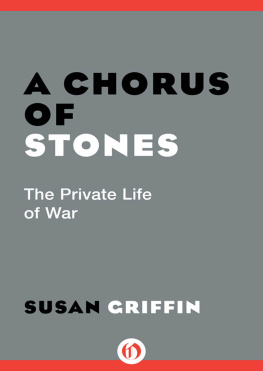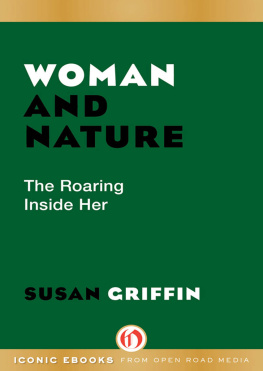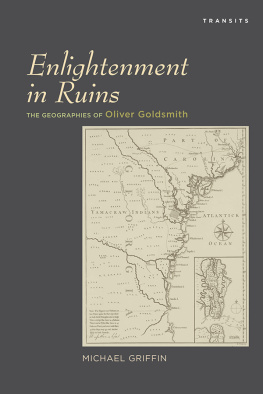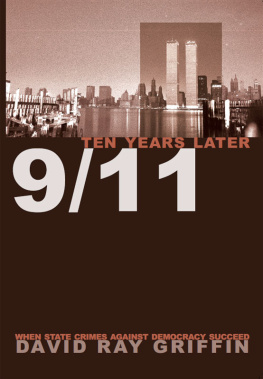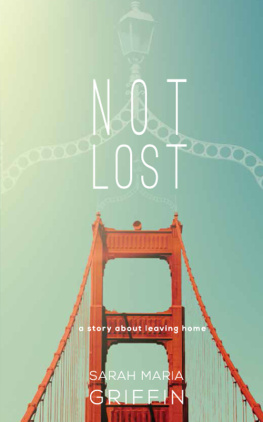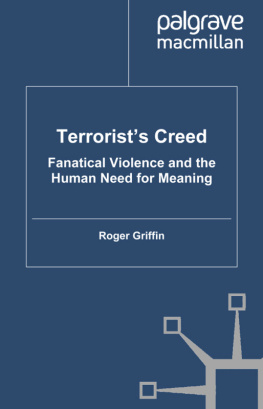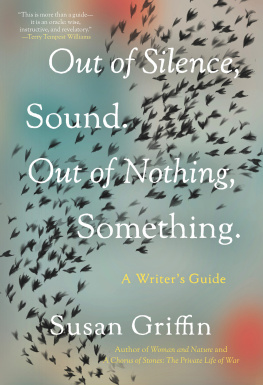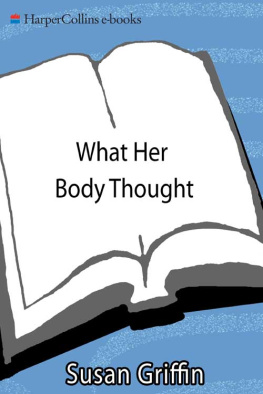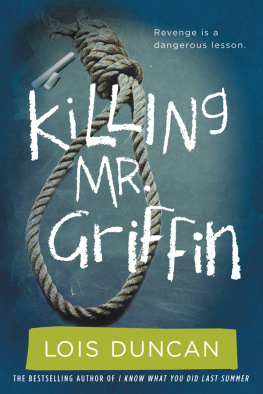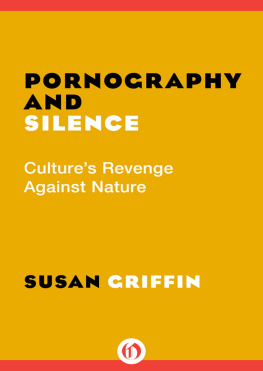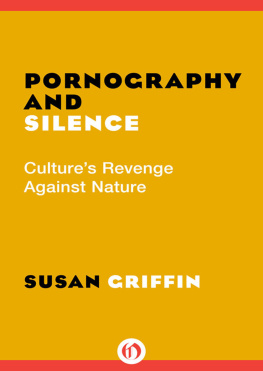A Chorus of Stones
The Private Life of War
Susan Griffin

Dedicated to the memory of Elissa Melamed,
who devoted the last years of her life to peace
and to all our children
CONTENTS
When someone lifts us
He lifts in his hand millions of memories
Which do not dissolve in blood
Like evening.
NELLY SACHS . Chorus of the Stones
For every atom belonging to me as good belongs to you.
WALT WHITMAN . Song of Myself
I
DENIAL
The cells of our bodies and the bodies of all mammals first appeared on this earth billions of years ago as plankton. Now, we can only speculate at the cause of this birth. Something changed at its core. Elements which had before been divided came together for the first time. A new thought perhaps took form. And the progeny of these plankton still float in the sea, not too close to the surface, nor too far from the light.
I am not free of the condition I describe here. I cannot be certain how far back in human history the habit of denial can be traced. But it is at least as old as I am. In our common history, I have found it in the legends surrounding the battle of Troy, and in my own family I have traced it three generations back, to that recent time past when there had been no world wars and my grandparents were young. All that I was taught at home or in school was colored by denial, and thus it became so familiar to me that I did not see it. Only now have I begun to recognize that there were many closely guarded family secrets that I kept, and many that were kept from me.
When my father was still a small boy, his mother did something unforgivable. It was a source of shame as many secrets are, and hence kept hidden from my father and, eventually, from me. My great-aunt would have told me this secret before she died, but by that time she could not remember it. I have always sensed that my grandmothers transgression was sexual. Whatever she did was taken as cause by my grandfather and his mother to abandon her. They left her in Canada and moved to California, taking her two sons, my father and his brother, with them.
My father was not allowed to cry over his lost mother. Nor to speak her name. He could not give in to his grief but instead was taught to practice the military virtue of forbearance and to set an example in his manhood for his younger brother, Roland. In this way I suppose my grandfather hoped to erase the memory of my grandmother from all of our minds. But her loss has haunted us.
How old is the habit of denial? We keep secrets from ourselves that all along we know. The public was told that old Dresden was bombed to destroy strategic railway lines. There were no railway lines in that part of the city. But it would be years before that story came to the surface.
I do not see my life as separate from history. In my mind my family secrets mingle with the secrets of statesmen and bombers. Nor is my life divided from the lives of others. I, who am a woman, have my fathers face. And he, I suspect, had his mothers face.
There is a characteristic way my fathers eyelids fold, and you can see this in my face and in a photograph I have of him as a little boy. In the same photograph there is a silent sorrow mapped on his face, and this sorrow is mine too.
I place this photograph next to two others which are on my desk. Tracing the genesis of the bombing of civilians, I have come across a photograph of Dresden taken in 1945. A few dark figures hunch over a sea of corpses. There are ruined buildings in the background and smoke from a fire. The other photograph was sent to me by my cousin, after I asked her if she knew the name of my paternal grandmother, or if she might have a picture of her.
The photograph my cousin did send me has a haunted quality, though it was taken in Canada before the erasure of my grandmother. It is not a picture of my grandmother. It is a picture of my grandfather with my father. It was taken a few years before masses of soldiers died on the battlefields of World War I, and over three decades before the bombing of Dresden, the concentration camps, Hiroshima. And yet, my grandfathers face bears an expression of grief just as if he were looking over a scene of senseless destruction, a field of bodies. What was his sorrow?
Whatever it is, I recognize it. There are times when I have said the words I want to die to sound an alarm through my own tissues. And yet, just as readily, I have avoided knowing this pain.
If I tell here all the secrets that I know, public and private, perhaps I will begin to see the way the old sometimes see, Monet, recording light and spirit in his paintings, or the way those see who have been trapped by circumstancesa death, a loss, a cataclysm of historygrasping the essential.
I was surprised to feel a kinship with my grandfather. I had never liked him. By the time I was born, he was a different man than the one whom this photograph captured. He rarely spoke. His face showed no emotion at all. He sat for long hours staring at, apparently, nothing. I remember thinking about him as if he were inanimate substance. Some feeling which surrounded him made my natural curiosity about people and things recede in his presence.
It was just this year, at the age of forty, that I learned for the first time my grandfather was an alcoholic. When my mother called to ask me what I was writing about, I described the photograph of Grandpa Hal I had received. Then she told me a story I had never heard.
Grandpa Hal was a quiet drinker. He was one of those men who could be past feeling, past knowing, wrapped in a blurred, numbed cloud, and yet walk and talk as if he were sober. Once, when my mother and father had quarreled, my mother tried to speak to him about her feelings. She went to the edge of the garden where he worked. But he would not respond. I might describe him as being like stone except that stones record history. The hard surface of the stone is impervious to nothing in the end. The heat of the sun leaves evidence of daylight. Each drop of rain changes the form; even the wind and the air itself, invisible to our eyes, etches its presence.
On my desk close to the photograph of my grandfather and father is a round triangle of black granite polished to a shine. At its center is the impression of a centipede, long segmented creature which left this ancient self-portrait, image of an ancestor from millions of years into our past. All history is taken in by stones. And perhaps it is this knowledge which made them weep when Orpheus sang. But what my grandfather suffered and witnessed was never to be told. His very manner discouraged questions.
He did have a life, one which the adult women of his household knew about, but what he did when he was away from the house existed in the category of scandal and thus, like my grandmother, was never mentioned. He had lovers. Women unworthy of being brought home, because they were considered whores. (And what he did with them was called whoring.) He spent time with these lovers in bars. My mothers father had had the same double life, and he never breathed a word of it to me but, like all scandals, it was whispered.
Grandpa Hals mother was a very strong-willed woman whose disapproval hardly needed to be spoken. So different was she from her son that for her even silence itself was a kind of speech. One said about her, She has eyes in the back of her head. I could have sequestered myself carefully in the garden, safe from all scrutiny, when suddenly her voice would penetrate the tall grass and bend around the trunk of a lemon tree to warn me to be careful of the kitten I had captured since it had a habit of scratching. There was such a divide between my grandfather and my great-grandmother, in my mind, that I seldom thought of them as mother and son.

